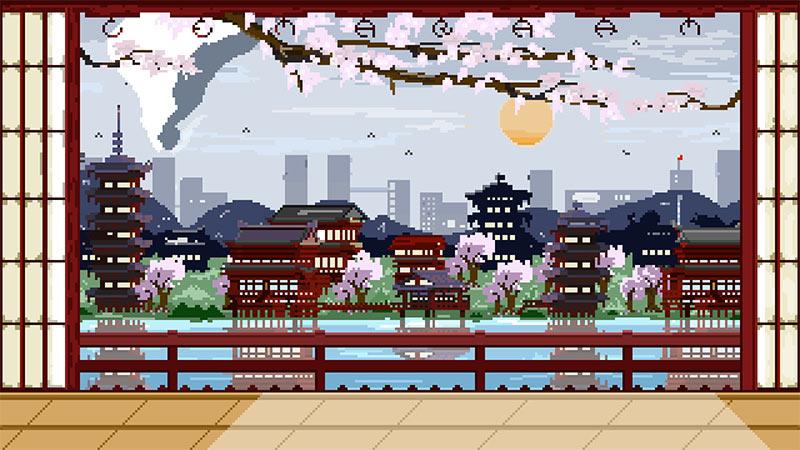Cem Er and Mohammed Arham Shikdar, students from the Computer Games Development BSc course, came first for graphics and visuals, and third overall with their computer game ‘Katana’ in August’s Novice Summer Jam Series: One-Button Input Jam, where contestants were required to create a video game which players could operate using only one button.

Entries contested in the ninth jam of the first Novice Summer Jam Series, held for new game developers over the summer break. The Series was created to build an inclusive community of game makers and artists from connected fields, encouraging cooperation and learning from one another. Contestants were free to choose the kind of game they wanted to create, while keeping the mechanical constraint of the one-button input.
Talking about the competition, Cem said: “The summer jam game-making series concluded with Arham and I attaining third place from a list of dozens of people, this is a fulfilling achievement for myself due to it being my first submission to a game jam. Receiving high ratings from other creators verified that we've produced something special. The process of creating our game from design to technical programming validated that the experience we have gained from the University was indispensable. Our personal creation from an amalgamation of different skills and techniques are being used in the making of a real-world product that anyone can play.”
Between 32 entries, the team ranked first for graphics and visuals, third for overall impression, seventh for audio, eighth for gameplay and ninth for implementing the one-button constraint. ‘Katana’ is a 2D platformer endless runner, created on Unreal Engine 5, with the pixel art made on Asperite. The game currently follows a linear level design, with future expansion for distinctive levels. ‘Katana’ takes the players to the world of the Japanese samurai, defeating their enemies in order to retrieve the ‘golden katana’ from the most guarded ‘dojo’ in Japan.
Talking about the development of the game, Arham said: “We wanted to be creative in our approach and make something that was unique and looked good, so we constructed a word document and joined a call which is where we presented our initial proposals to each other and gradually added onto it to create ‘Katana’. We initially took ideas from different mobile games. The endless loop was something we were instantly interested in implementing into Katana, also the inspiration of the setting of our levels came from ‘Ninja Gaiden’ and Nintendo Entertainment System (NES) classics.”
Cem and Arham met in the second year of their course. While studying together, they discovered that they both share a great passion for making games, which lead to their collaboration. After Arham decided to set up the Games Society for the University, Cem joined the council hosting events and raising money for charity.
Regarding their partnership, Cem said: “As we got to know each other better over the course of several months we both developed a mutual understanding that we work competently as a team. We are able to bounce off of each other's ideas and also accept criticism wherever needed. We both want to launch our own studio ‘Evolved Goats' in the future and acknowledge that this achievement is our first steppingstone to our future endeavours.”
Learn more about Computer Science and Engineering courses at the University of Westminster.





